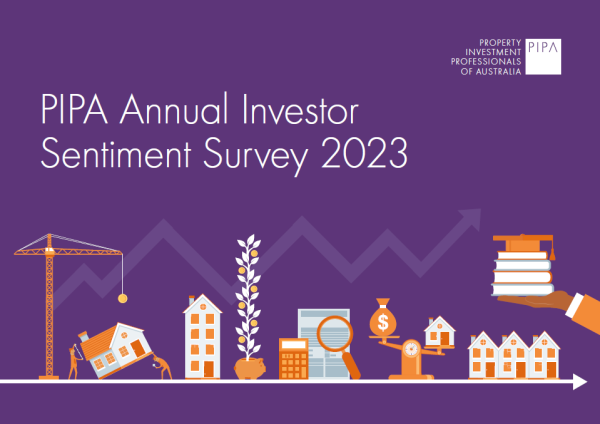‘Strong’ and ‘encouraging’: Industry reacts to 2020 budget
Oct 2020Karen Millers
Categories
Location ReportsMedia releasesNational market updatesPersonal advisersPIPA AdviserPIPA Annual Investor Sentiment SurveysPIPA Member ProfilesPIPA video updatesPIPA webinarsPodcastsProperty advisersProperty newsLatest Articles
Which property cycle are we in?
Rent rises ease but crisis’ link to population density found to be tenuous
Jordan van den Berg: The ‘Robin Hood’ TikToker taking on Australian landlords
Victorian property investors face yet another new property tax as council tests levy
This week’s federal budget has been mostly well received by members of the real estate industry, who have applauded the measures taken to boost consumer confidence and kickstart property activity.
REB has looked at how the budget’s announced measures could impact real estate agents here.
For the Real Estate Institute of Australia (REIA), the budget “has provided an encouraging outlook for all players in the Australian property market”.
REIA president Adrian Kelly has commended the “solid support” for real estate agencies and their customers.
He said bringing forward and backdating stage 2 tax cuts will improve borrowing capacity and housing affordability.
“This comes at a time when the outlook for interest rates will remain low until at least 2023,” he said.
Despite the positivity, the president has erred on the side of caution.
Outlining that economic activity is forecast to pick up strongly from late 2020 and into early 2021, driven by a further easing of COVID-19 containment measures and improving business and consumer confidence, Mr Kelly did note a need to be realistic about the challenges COVID-19 presents.
“The budget’s forecast may prove to be optimistic given the uncertainty of overcoming of COVID and the reopening of borders,” he said.
He also considered the budget as “an opportunity lost” in helping more Australians into their first homes.
“The First Home Buyer Deposit Scheme should be extended to all eligible buyers of all homes, not just new builds. This will be a priority for REIA moving into 2021,” he stated.
But the First Home Loan Deposit Scheme (FHLDS) has been applauded from other corners of the industry, with real estate giant Ray White acknowledging measures it contained as helping to rebuild the economy and give home buyers further confidence.
According to the group’s managing director, Dan White, the move to help first home buyers get their foot on the property ladder is a positive for the industry.
Ray White said the amended rules and increased price caps would ensure the scheme boosts the sales of apartments and detached housing.
“The measures announced tonight will help build further momentum in the property market and Australia’s largest asset class, thereby creating confidence across the whole community,” Mr White commented.
As a result, Mr White said the company is expecting property activity for the balance of the year to be stronger than it was pre-COVID.
“Unlike the established market, apartment sales have been difficult this year, so this is a very welcome boost for this sector,” the managing director stated.
“It will give first home owners a much better opportunity to get into new property which often focuses on inner-city areas at affordable prices, appealing to a younger demographic. Importantly, it will rebuild developer confidence to commence construction of apartment projects.”
The positive sentiment was also reflected by Property Investment Professionals of Australia (PIPA), with chairman Peter Koulizos considering there to be “plenty” of good news contained in the federal budget.
He has also applauded the additional 10,000 places in the First Home Loan Deposit Scheme for enabling more prospective home buyers achieve their property ownership dreams.
But he did concede “it would have been nice to see the property sector further stimulated, including the extension of the successful HomeBuilder program into next year”.
He said the scheme had done a lot of the heavy lifting for the property and construction sectors this year, “so it would have been great to see the program run for longer than just six months to further underpin employment”.
Elsewhere, Mr Koulizos said job-creation initiatives and tax cuts would “certainly support the property market, including helping young people not only stay in their rental properties but also move into home ownership if they have secure employment”.
The REIA also expressed support for the government’s acknowledgement of affordable housing within the budget.
Mr Kelly said that the boost to affordable housing was good news for Australia’s tenants requiring somewhere to live.
He said COVID-19 had highlighted “that the private sector is carrying most of the load to support our tenants, and the government-led affordable housing commitment for NHFIC in the form of $1 billion is most welcomed”.
On a business level, the REIA said the measures contained within the budget would support Australia’s real estate agents directly as well as indirectly through increased economic activity.
Mr Kelly called the reintroduction of the loss carry-back provisions, expansion of the instant asset write-off program and exemptions for fringe benefits tax as “pragmatic” for Australia’s real estate agencies.
Grace Ormsby, realestatebusiness.com.au, 7 October 2020
https://www.realestatebusiness.com.au/sales/20520-strong-and-encouraging-industry-reacts-to-2020-budget




